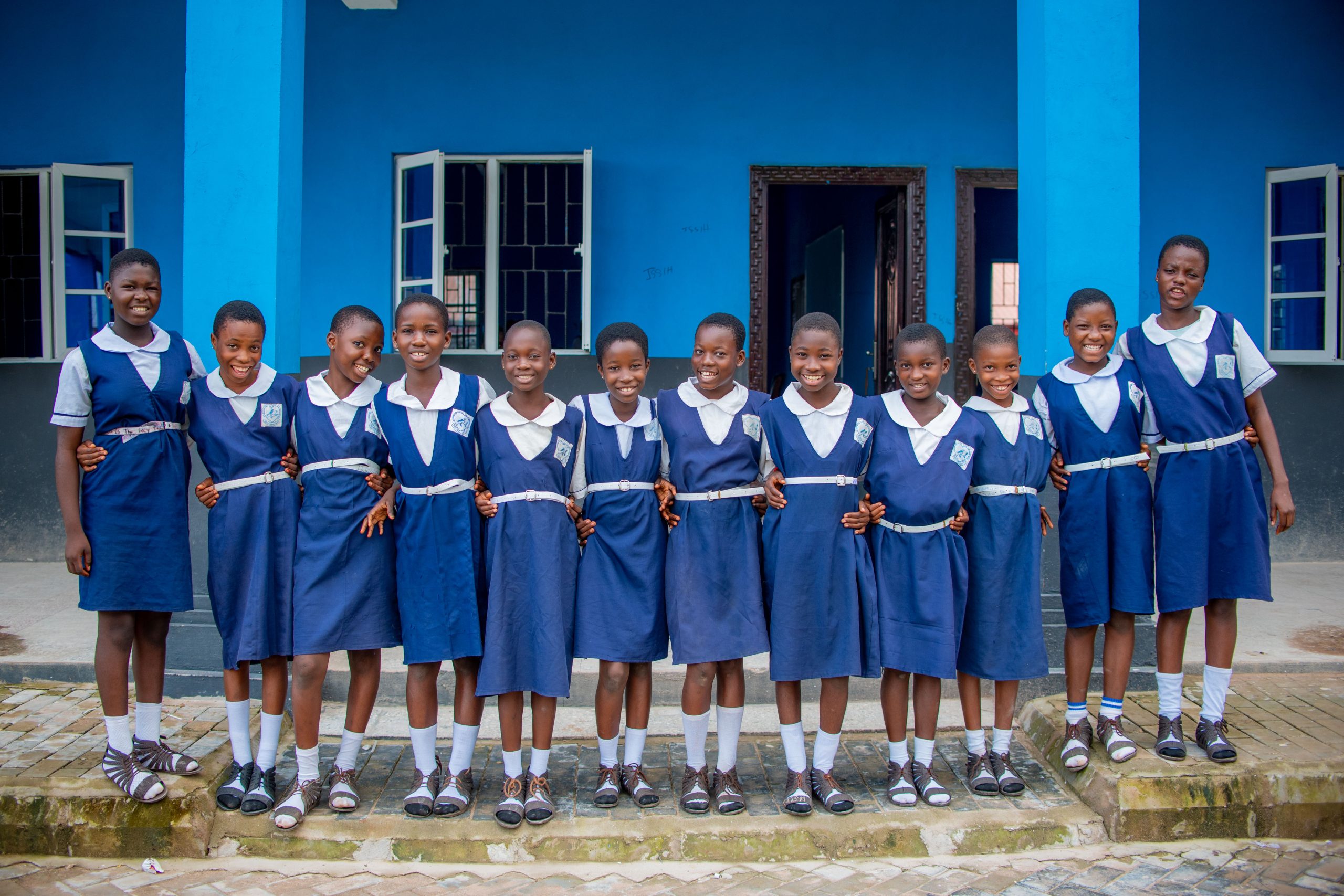On 2, October 2023 amidst cheers and applause, 12-year-old Eunice Osaigbovo of Imaguero Junior Secondary School, a state-owned junior secondary school in Benin City was announced winner of an essay competition, edging out other contestants from 15 private schools.
Over the past five years since the EdoBEST reform programme was launched by Governor Godwin Obaseki, the fortunes of state-owned schools and their students (as it pertains to the learning outcomes of their students, amongst other things) have significantly improved. Osaigbovo’s win was just another testament to the impact of Edo State’s investment and focus on girls.
In many rural, hard-to-reach areas in Nigeria, most girls have their dreams truncated because of a lack of access to basic education services or having to drop out because of funding. In Edo state, the EdoBEST programme adopted the progressive school model to provide quality education to boys and girls in rural, migrant and hard-to-reach areas.
Operating in 148 schools, children in these areas now have access to the same quality of education their counterparts receive in urban areas which has led to a drastic improvement in foundational learning and by extension, learning outcomes.
The EdoBEST programme through the various models has reduced the number of out-of-school children in the state. Currently ranked as one of the states with the lowest number of out-of-school children in Nigeria, the state government, through a methodology that encourages equal participation and enrollment, has achieved 49% gender parity through local support and ownership of the EdoBEST programme.
In 2022, the Edo State government launched the School O’clock campaign. The campaign was targeted at reducing out-of-school children in the state while increasing enrolment in public schools. One year later, the initiative has helped increase enrolment by 17%.
While Section 15(1) of the Nigerian Child Rights Act states, “Every child has the right to free, compulsory and universal basic education and it shall be the duty of the government in Nigeria to provide such education”, according to UNICEF, over 10.5 million children in Nigeria are not in school even though primary education is officially free and compulsory.
Using a teaching methodology that encourages active participation by girls and boys, EdoBEST has prioritised learning outcomes for both boys and girls, unlike many traditional educational models that mainly focus on boys. This teaching methodology has also led to improvement in the learning outcomes of girls as evidenced by a report released by Nobel Prize Winner, Michael Kremer.
Through a sensitization campaign spearheaded by the Social Mobilization Office of Edo SUBEB, the department conducts rallies, campaign outreaches to markets as part of the sensitization campaign to get more girls in schools. These outreaches are conducted in markets, churches and community clusters.
Engaging parents and community members, especially in rural and hard-to-reach areas to improve enrolment in schools and ensure more girls, the team sensitizes on the need for girl-child education.
In these critical formative years, every girl deserves to access a safe, educated, and healthy life as they mature into women. Through the EdoBEST programme, gender issues have been brought to the fore amplifying the Edo Violence Against Persons Prohibition (VAPP) Act and the Edo Child Rights Law as a system to protect girls in all Edo state public schools.
To further protect the girl child, every EdoBEST school currently runs an anti-gender-based violence club. This club enlightens students on the dangers of gender-based violence and upholds girls’ rights. The clubs are headed by trained teachers, counsellors and heads of schools who ensure that every child is protected, with cases reported on a timely basis.
Extending the EdoBEST programme last year to cover 287 junior secondary and 149 progressive schools gave girls like Eunice and over 38,000 girls who receive quality life-changing education daily, an opportunity to dream big, breaking glass ceilings.
Studies show that fewer girls tend to participate in class activities. At the classroom level, the EdoBEST methodology is structured in a way that the classroom management techniques actively engage students, both male and female in the class, effectively making them a part of the learning process. This has encouraged female enrolment and participation.
Having worthy role models has proven to help more girls be more ambitious and aim higher in their academic and career pursuits. In education, Edo state has had repeated appointments of capable and exemplary successive female Edo SUBEB Chairman. They have proven to be role models for females in the school system by working with the state government to improve the standard of education in the state.
Deliberate attention is now being paid to girl-related issues leading to a culture of acceptance and emphasis on the potential of girls. Such celebrations as International Day of the Girl Child, International Day of Girls and Women in Science and World Menstrual Hygiene Day help to emphasise girl-related issues which are central to the success of females.
The EdoBEST programme continues to prioritize the delivery of basic education services, through improved learning outcomes, and protection of child rights in all state-owned schools across Edo State.


